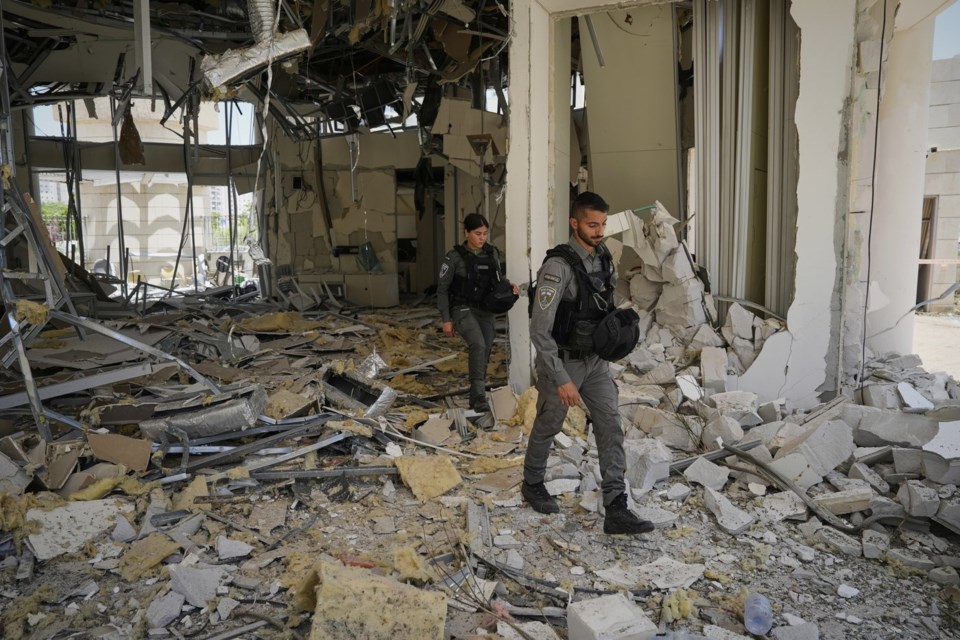There are approximately 3,500 Canadians in Iran and another 6,700 in Israel amid an escalating conflict between the two countries, Global Affairs Canada says.
The count is based on the voluntary registration of around 80,000 Canadians in the Middle East and doesn’t fully reflect how many of them may need help getting out of the region, the department said in a statement.
Global Affairs Canada added that it hasn’t received any reports of Canadian injuries or deaths in the conflict.
The department is warning against all travel to Iran, Israel, the West Bank and the Gaza Strip and advising Canadians in the Middle East to monitor the news and follow the instructions of local authorities.
Military strikes and falling debris from the hostilities pose “serious risks” across the region, the department said, adding that the situation may result in disruptions to transportation and air travel, as well as border closures.
Maddy Eisenberg is an Ottawa resident currently stuck in Tel Aviv after her flight home from what was supposed to be a one-week trip in Israel was grounded.
Eisenberg is among a dozen Canadian and U.S. residents in an LGBTQ+ Jewish delegation that arrived in Israel last week to learn more about the country and attend the Tel Aviv Pride parade.
Eisenberg’s departure flight from Tel Aviv on Monday was grounded as missile attacks between the two countries intensified. She was told it could take days or maybe weeks for her to return home.
“It’s a bit of a shock to the system to hear that it could take weeks,” she said in an interview. “But also none of us at the same time expected a brand new war to just break out, so there’s that.”
Israel first launched strikes on Iran’s capital Tehran in the early hours of Friday in what it said was an attack targeting Iran’s nuclear and energy sites to prevent the country from building a nuclear weapon.
In retaliation, Iran launched hundreds of drones and missiles against Israel, with explosions rocking the cities of Tel Aviv and Jerusalem.
Eisenberg said she wasn’t prepared for the wake-up call she received over her hotel’s loudspeaker early Friday morning, adding that she only had a few moments to search for her shoes and passport in the dark and run to a bomb shelter.
“That was the first time we experienced a bomb shelter for all of us in the delegation,” she said.
The conflict has escalated since the initial attacks. Israeli strikes have killed more than 200 people in Iran and injured more than 1,200. In Israel, just over two dozen people have been killed by Iranian strikes, with more than 500 wounded.
In the days following the initial attacks, Eisenberg said she’s been receiving notifications to go to the bomb shelter close to every half-hour, with many of the alerts coming in the middle of the night.
“We’ve learned to sleep in our clothing, we have our go bag ready, we have water,” she said. “There is no daylight and no way to get in, so we bring what we need.”
Eisenberg said she is hopeful that she can get back to Ottawa to reunite with her husband, parents, niece and nephew as soon as possible.
“There was an expectation that this would be the trip of a lifetime for a week and then that's it and then I go back to my regular life. And that has obviously changed,” she said.
— With files from The Associated Press
This report by The Canadian Press was first published June 17, 2025.
Vanessa Tiberio, The Canadian Press




